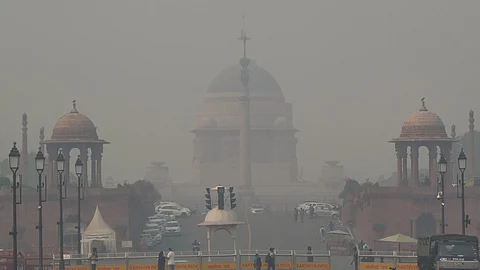

In a bid to curb the air pollution in the national Capital, the Arvind Kejriwal-led Delhi Government is mulling the idea of artificial rain through cloud seeding by November 20. The idea of artificial rain was discussed during a meeting of Delhi Environment Minister Gopal Rai with experts from the Indian Institute of Technology (IIT), Kanpur, on November 8. The government had approached the Supreme Court with the proposal. The court, however, has asked the Delhi government to approach the Union government directly, questioning why the court’s interference is needed.
What is artificial rain?
Artificial rain is created through a process called ‘cloud seeding’, in which chemicals like silver iodide, potassium iodide, dry ice or sodium chloride are sprinkled on the atmosphere via helicopter, aircrafts or drones. The process is similar to seeding on fertilised land. These chemical particles, once introduced into the atmosphere attract water vapour and form artificial clouds, which then leads to rainfall.
Join TNM and Newslaundry as we bring to you the most compelling reporting and analysis during the upcoming elections in Telangana, Mizoram, MP, Chhattisgarh, and Rajasthan. Click here to support our election coverage.
When will it be conducted?
Environment Minister Gopal Rai said that the minimum requirement for conducing artificial rain is 40% of cloud and moisture. He also said that IIT-Kanpur has also informed the weather department that there is a possibility of favourable conditions on November 20 and 21, for which it is planned to be undertaken.
How will it be conducted?
According to reports, the initiative is headed by IIT-Kanpur, which had conducted cloud seeding trials in June. IIT-Kanpur is set to deploy a six-seater Cessna plane to seed the clouds using silver iodide. IIT has estimated that it would take Rs 1 lakh per square kilometre. The estimated cost for the project that will be conducted in two phases is Rs 13 crore.
What are the disadvantages?
Experts state that artificial rain offers temporary relief but is not a long-term solution. It can cause ozone layer depletion, ocean acidification, and potential harm from the chemicals utilised.
(With IANS inputs)